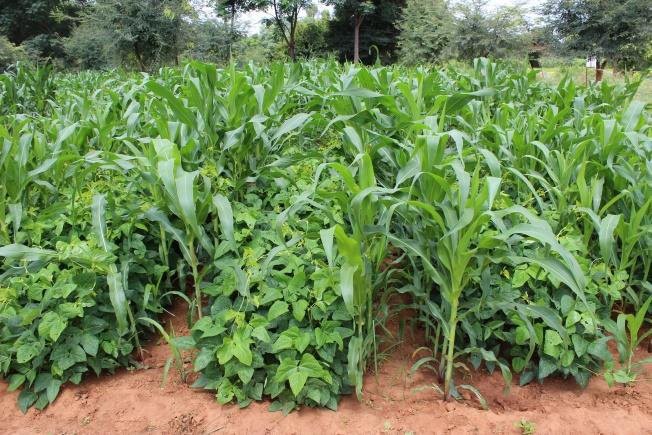Researchers working in the central plateau of Burkina Faso (Saria) have confirmed that intercropping sorghum and cowpea offers a highly effective solution to combat runoff, soil erosion, and poor yields in the Sahel region.
The semi-arid area, with annual rainfall averaging about 800 millimeters, sits on gently sloping land (less than 3%). Despite the modest slope, farmers face serious land degradation problems, with up to 40% of rainfall lost as runoff and soil erosion reaching 4–8 metric tons per hectare each year. These conditions threaten food security and long-term agricultural productivity.
The experiment
Over a three-year field study, scientists tested different cropping systems on ferric lixisol soils—a common but fragile soil type in the region that is prone to erosion and nutrient depletion.
They compared:
Sorghum grown alone
Cowpea grown alone
Sorghum–cowpea intercropping
Runoff and soil loss were carefully measured during rainfall events, while yields were recorded to assess productivity outcomes.
The results
The findings showed clear advantages for intercropping:
Runoff control: Sorghum–cowpea plots reduced runoff by 20–30% compared to sorghum monocrops, and by an even greater 45–55% compared to cowpea monocrops.
Erosion reduction: Soil loss was cut by at least 50% when the two crops were grown together, demonstrating intercropping’s protective effect on fragile Sahel soils.
Yield benefits: Intercropped plots produced double the grain yields of monocropped sorghum or cowpea, showing that conservation does not come at the expense of productivity.
Why Intercropping Works
The success of the system lies in how the two crops complement each other:
Sorghum, a tall cereal, provides ground cover with its canopy, reducing the impact of raindrops on the soil.
Cowpea, a spreading legume, covers the soil surface quickly, stabilizing it and improving nitrogen content through fixation.
Together, they create a natural shield against erosion while enhancing soil fertility and overall crop performance.
Broader Implications
For farming communities in the Sahel—where fragile soils, erratic rainfall, and food insecurity converge—this technique presents a low-cost, climate-smart solution. It addresses both environmental challenges (soil degradation, water loss) and economic needs (higher yields and better food security).
Experts believe that scaling up sorghum–cowpea intercropping across West Africa could help reverse land degradation trends while supporting sustainable agriculture for millions of smallholder farmers.


